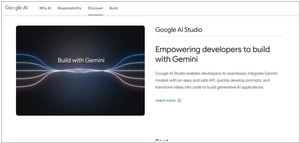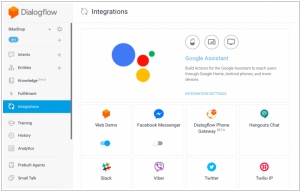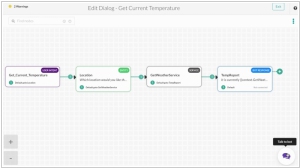Dialogflow vs Rasa
December 16, 2023 | Author: Sandeep Sharma
See also:
Top 10 Chatbot Builders
Top 10 Chatbot Builders
Dialogflow and Rasa are both popular platforms for building chatbots and natural language processing (NLP) applications, but they have distinct differences that cater to different user needs and preferences. One of the key differences lies in their architecture and hosting options. Dialogflow, owned by Google, is a cloud-based platform that offers a user-friendly interface and easy integration with other Google services. It is particularly suitable for users who prefer a managed service with less overhead in terms of deployment and maintenance. On the other hand, Rasa is an open-source platform that allows users to have more control over their chatbot's data and infrastructure. It can be deployed on-premises or on a cloud provider of the user's choice, offering greater customization and data privacy for businesses with specific regulatory requirements.
Another significant distinction between Dialogflow and Rasa is their NLP capabilities. Dialogflow is built on Google's powerful NLP technology, which includes pre-trained machine learning models for recognizing intents and entities in user input. This makes it well-suited for understanding and processing user queries with high accuracy. However, the level of customization for training these models may be limited. In contrast, Rasa's strength lies in its natural language understanding (NLU) engine, which is fully open-source and customizable. This allows developers to fine-tune the NLP models and train them with domain-specific data, making Rasa a top choice for businesses that require highly specialized and precise language processing.
Lastly, the community and ecosystem around Dialogflow and Rasa differ significantly. As a product of Google, Dialogflow benefits from a large and active user community, with extensive documentation, support, and frequent updates from the parent company. Additionally, it easily integrates with other Google services, making it a preferred choice for businesses already using Google's ecosystem. Rasa, being open-source, has a vibrant community of developers contributing to its continuous improvement and development. While it may require more technical expertise to set up and customize, the open-source nature of Rasa allows for greater transparency, control, and the ability to leverage a wide range of third-party libraries and tools.
See also: Top 10 Chatbot Builders
Another significant distinction between Dialogflow and Rasa is their NLP capabilities. Dialogflow is built on Google's powerful NLP technology, which includes pre-trained machine learning models for recognizing intents and entities in user input. This makes it well-suited for understanding and processing user queries with high accuracy. However, the level of customization for training these models may be limited. In contrast, Rasa's strength lies in its natural language understanding (NLU) engine, which is fully open-source and customizable. This allows developers to fine-tune the NLP models and train them with domain-specific data, making Rasa a top choice for businesses that require highly specialized and precise language processing.
Lastly, the community and ecosystem around Dialogflow and Rasa differ significantly. As a product of Google, Dialogflow benefits from a large and active user community, with extensive documentation, support, and frequent updates from the parent company. Additionally, it easily integrates with other Google services, making it a preferred choice for businesses already using Google's ecosystem. Rasa, being open-source, has a vibrant community of developers contributing to its continuous improvement and development. While it may require more technical expertise to set up and customize, the open-source nature of Rasa allows for greater transparency, control, and the ability to leverage a wide range of third-party libraries and tools.
See also: Top 10 Chatbot Builders
Dialogflow vs Rasa in our news:
2023. Google launches AI Studio for developing chatbots based on its Gemini model

Google has extended the Gemini platform to developers through the launch of several new and enhanced services. Notably, AI Studio, previously known as MakerSuite, stands out among these offerings. Functioning as a web-based tool, AI Studio serves as a portal to the broader Gemini ecosystem, initially supporting Gemini Pro and, in the coming year, Gemini Ultra. This tool empowers developers to efficiently create prompts and Gemini-based chatbots, providing API keys for integration into their applications or access to the code for further development in a more comprehensive integrated development environment (IDE). It is noteworthy that the service offers a relatively generous free quota, allowing up to 60 requests per second. This ample allowance facilitates rapid iteration on ideas without encountering restrictive limitations, potentially supporting the deployment of less frequently used applications in production.





